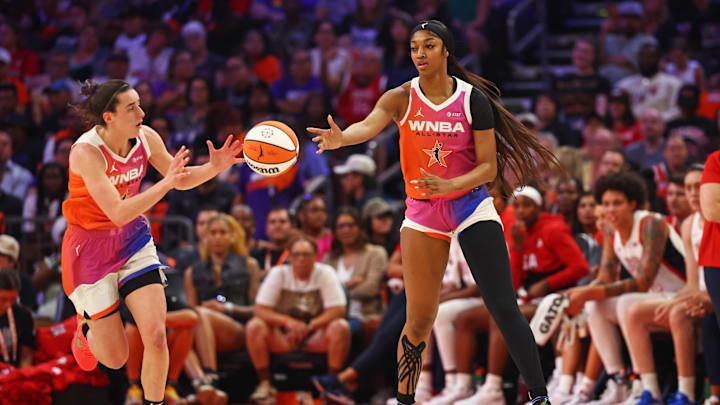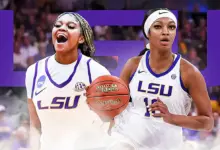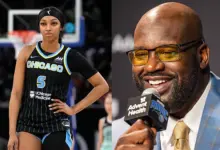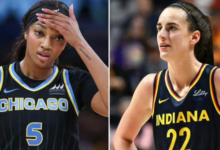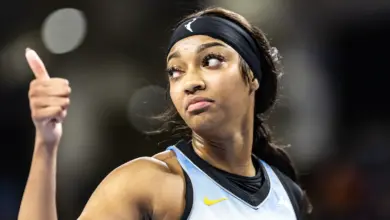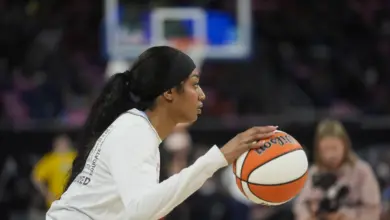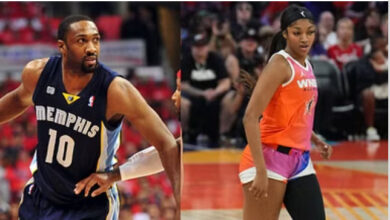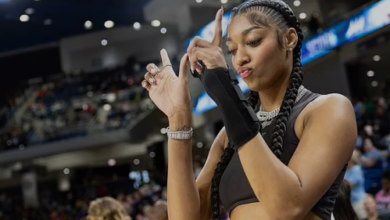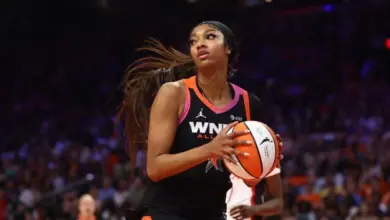WNBA Commissioner Explains Why League ‘Needs’ Caitlin Clark-Angel Reese Rivalry
Amid a watershed year for women’s basketball, the popularity and growth that the WNBA has enjoyed since the arrival of rookies Caitlin Clark and Angel Reese hasn’t come without unintended consequences.
Clark’s and Reese’s coinciding successes have given each player her time to shine in the national spotlight, but the dark underbelly of that exposure reveals what too often tends to be toxic discourse on the two stars across social media.
WNBA commissioner Cathy Engelbert recently joined CNBC for an exclusive interview and gave her frank take on why the Clark-Reese rivalry was, in fact, a good thing for the league.
“It’s a little of that [Larry] Bird-Magic [Johnson] moment if you recall from 1979, when those two rookies came in from a big college rivalry, one white, one black,” Engelbert said (at the 3:15 mark in the video). “And so we have that moment with these two. But the one thing I know about sports, you need rivalry. That’s what makes people watch. They want to watch games of consequence between rivals. They don’t want everybody being nice to one another.”
Engelbert may have a point in that most thriving sports leagues boast iconic, decades-old rivalries that keep fans engaged and entertained—but at what cost?
Clark’s and Reese’s rivalry dates back to their collegiate days, when the two crossed paths in feisty NCAA tournament matchups between Iowa and LSU. Since the start of the WNBA season, the chatter surrounding Clark and Reese has felt incessant and tiresome and has more often torn one or both athletes down rather than lifting them up.
Early in Clark’s young WNBA career, the 22-year-old guard had to field tough questions about her name being weaponized by people for racist and misogynist purposes. As recently as last week, Reese talked about the death threats and maltreatment she’s received from Clark’s fans in the past.
Negativity aside, Engelbert chose to focus on the more glamorous—and profitable—side of the Clark-Reese rivalry, which has helped boost the league’s popularity and players’ financial worth.
“It’s a balance, but certainly from a marketing dollars [perspective], corporate partners are stepping up to endorse these players much more so than they were five years ago because they see the benefit of having women and diverse women representing their brand,” Engelbert said.
